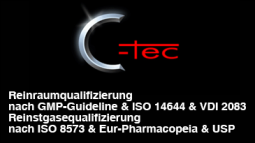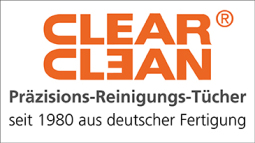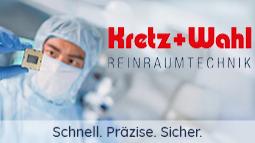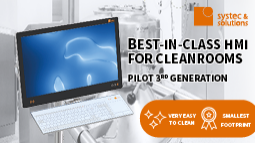- Union, Association, Cluster
Fraunhofer Center MEOS becomes technology hub for cell-based therapeutics in Thuringia
At the Fraunhofer Center for Microelectronic and Optical Systems for Biomedicine (MEOS) in Erfurt, the MEOS Innovation Center for Precision Analysis of Cell Therapy Products, or MIC-PreCell for short, is being established until summer 2023. Funded with 750,000 euros from the Free State of Thuringia, this center will then support the development of new analysis methods for quality assurance and process control for the manufacturing of cell-based therapeutic products.
The Fraunhofer Center MEOS combines the expertise of the Fraunhofer Institute for Cell Therapy and Immunology IZI, the Fraunhofer Institute for Photonic Microsystems IPMS and the Fraunhofer Institute for Applied Optics and Precision Engineering IOF in the fields of life sciences, microelectronics, optics and photonics. The new innovation center MIC-PreCell is embedded within MEOS, and can build on these foundations.
With MIC-PreCell, infrastructure and know-how are brought together to narrow the currently still existing large gap between innovative technologies for the analysis of quantitative, cell-related parameters, and their broad application in the context of the production of cell-based therapeutics. Cell-based therapies, such as chimeric antigen receptor T-Cells (CAR-T), are usually personalized to the individual patient receiving the treatment, and are still very expensive due to the very complex and lengthy manufacturing processes. Moreover, for people in the critical stages of cancer, timely manufacturing is often crucial to survival. Within the framework of MIC-PreCell, modern, innovative methods of integrated quality assurance are therefore to be established, with which the manufacturing processes can be monitored in real-time and any production errors can be detected considerably earlier, thus improving success rates of the final product.
In doing so, the project team is focusing on the broad use of innovative quality assurance methods in cell production, such as optomechanical profiling, which can be used to determine mechanical cell properties immediately and without labeling. The Fraunhofer researchers also plan to use a gas chromatograph-ion mobility spectrometer to analyze VOCs, volatile organic compounds emitted by cell cultures to the outside air, which act as metabolic fingerprints. In addition, devices for micromanipulation of cells and cell clusters or organoids will be used, allowing direct and detailed real-time information on the state and potency of therapeutic cell products.
Dr. Michael Scholles, head of the Fraunhofer Center MEOS explains: "The funding from the Ministry of Economy, Science and Digital Society of the Free State of Thuringia enables us to develop the Fraunhofer Center MEOS into a multidisciplinary technology hub and will further advance the development of novel gene and cell therapeutics. In this way, Central German companies and research institutions will be able to draw on a unique technological resource that opens up a wide range of development opportunities at an international level."
"Ultimately, with significantly improved quality control, we want to help make these revolutionary cell and gene therapies more cost-effective to implement and more accessible for patients. With the MIC-PreCell infrastructure, we can significantly increase the excellence of the research being conducted at the Erfurt site in the field of cell-based therapeutics," adds Dr. David M. Smith of Fraunhofer IZI, who is coordinating the MIC-PreCell project as part of his work at the Fraunhofer Center MEOS.
The MEOS Innovation Center for Precision Analysis of Cell Therapy Products, funded by the Free State of Thuringia, is co-financed by funds from the European Union under the European Regional Development Fund (ERDF) and REACT-EU.
Fraunhofer-Zentrum für Mikroelektronische und Optische Systeme für die Biomedizin MEOS
99099 Erfurt
Germany









